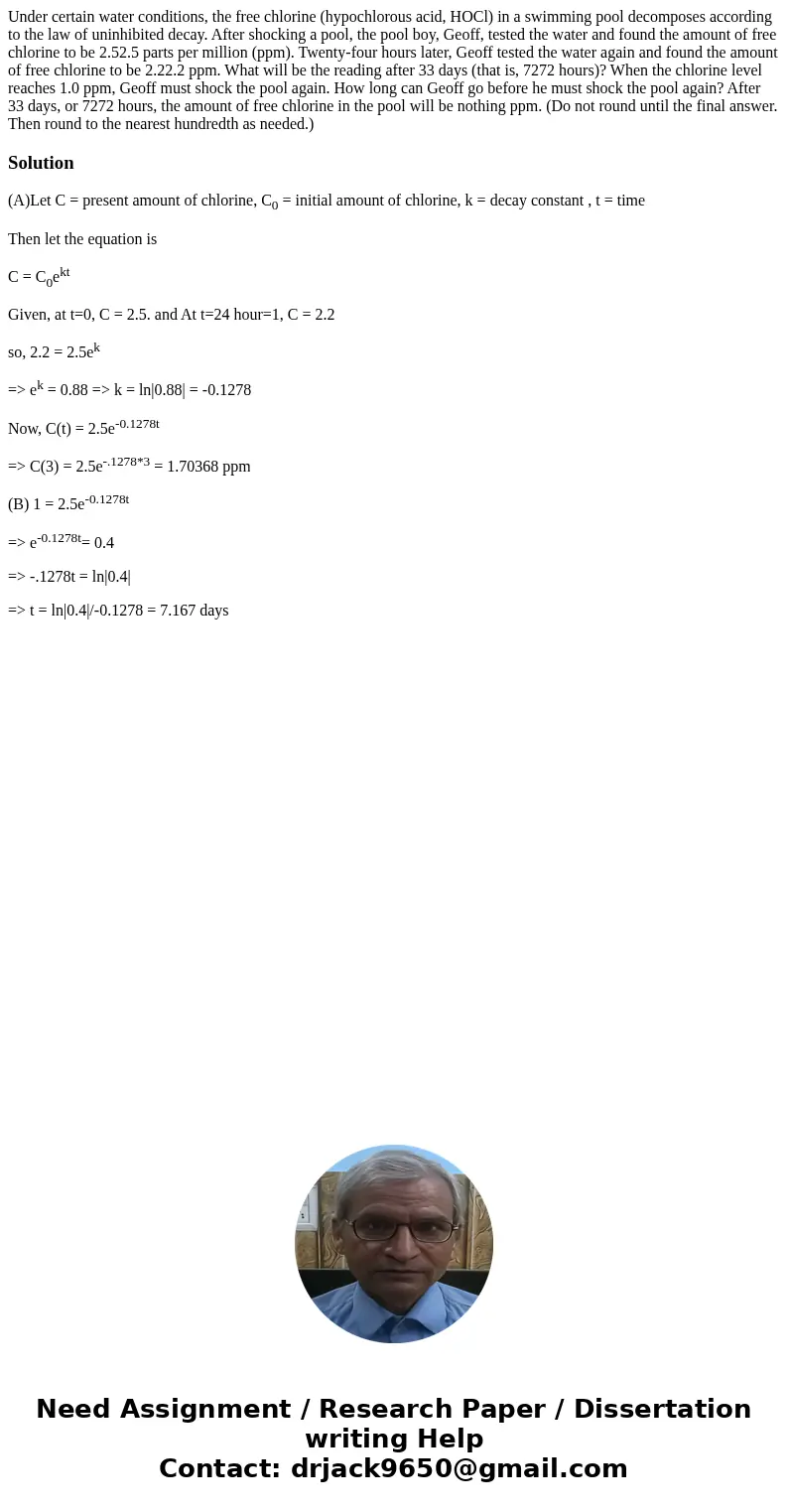Under certain water conditions the free chlorine hypochlorou
Under certain water conditions, the free chlorine (hypochlorous acid, HOCl) in a swimming pool decomposes according to the law of uninhibited decay. After shocking a pool, the pool boy, Geoff, tested the water and found the amount of free chlorine to be 2.52.5 parts per million (ppm). Twenty-four hours later, Geoff tested the water again and found the amount of free chlorine to be 2.22.2 ppm. What will be the reading after 33 days (that is, 7272 hours)? When the chlorine level reaches 1.0 ppm, Geoff must shock the pool again. How long can Geoff go before he must shock the pool again? After 33 days, or 7272 hours, the amount of free chlorine in the pool will be nothing ppm. (Do not round until the final answer. Then round to the nearest hundredth as needed.)
Solution
(A)Let C = present amount of chlorine, C0 = initial amount of chlorine, k = decay constant , t = time
Then let the equation is
C = C0ekt
Given, at t=0, C = 2.5. and At t=24 hour=1, C = 2.2
so, 2.2 = 2.5ek
=> ek = 0.88 => k = ln|0.88| = -0.1278
Now, C(t) = 2.5e-0.1278t
=> C(3) = 2.5e-.1278*3 = 1.70368 ppm
(B) 1 = 2.5e-0.1278t
=> e-0.1278t= 0.4
=> -.1278t = ln|0.4|
=> t = ln|0.4|/-0.1278 = 7.167 days

 Homework Sourse
Homework Sourse